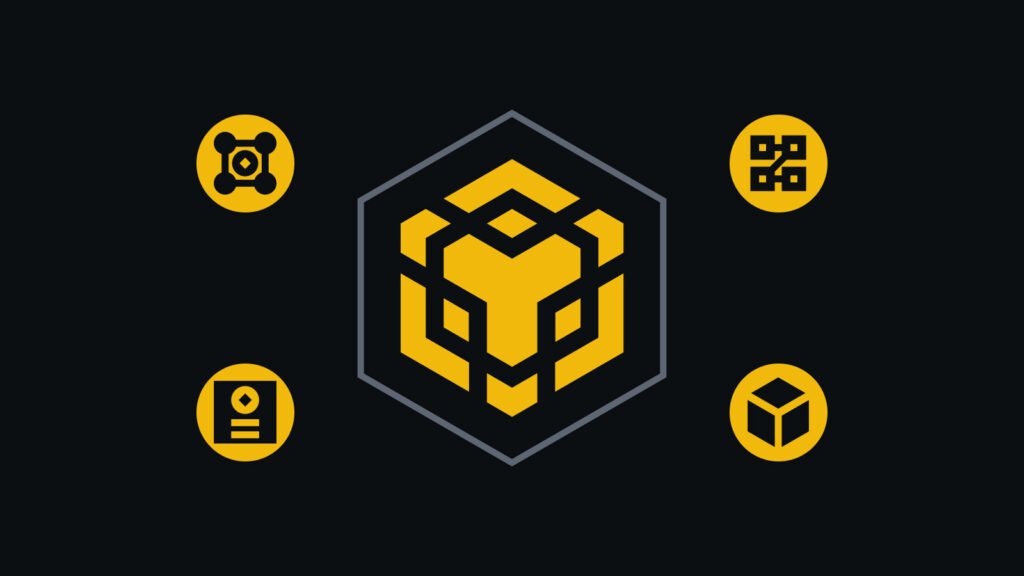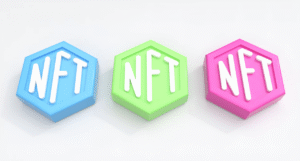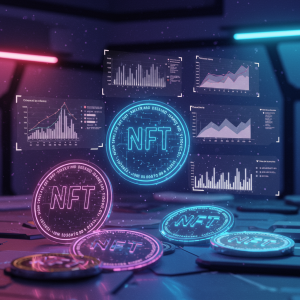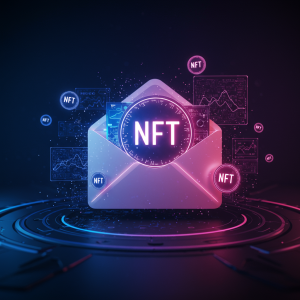Can I Convert NFT to Real Money: Your Complete Guide

Converting NFTs into real money has become a practical reality for thousands of digital asset holders worldwide. The process involves several methods, each with distinct advantages and considerations that affect how quickly and profitably you can liquidate your digital collectibles.
The conversion process depends heavily on your NFT’s current market value, the platform where it’s hosted, and the payment methods you prefer to receive. Understanding these variables helps you choose the most efficient path from digital ownership to cash in your bank account.
Success in NFT monetization requires knowledge of market timing, platform mechanics, and tax implications that many new holders overlook. These factors can significantly impact your final returns and overall conversion experience.
Primary Methods for NFT Conversion
Direct marketplace sales represent the most straightforward approach to converting NFTs into money. Major platforms like OpenSea, Rarible, and Foundation facilitate transactions between buyers and sellers using cryptocurrency payments that can subsequently be converted to traditional currency.
Peer-to-peer transactions offer alternative routes when marketplace sales prove challenging or when you want to avoid platform fees. Private sales through social media, Discord communities, or direct contact with interested collectors can sometimes yield better prices than public auctions.
Fractional ownership platforms allow you to sell portions of valuable NFTs rather than entire pieces, making expensive digital assets more accessible to multiple buyers while providing you with immediate liquidity for part of your holdings.
Understanding Market Dynamics
NFT values fluctuate based on collection popularity, artist reputation, and broader market sentiment toward digital assets. Timing your conversion attempts around positive market conditions often results in better selling prices and faster transaction completion.
Floor prices within collections provide baseline references for pricing your NFTs competitively while still maximizing returns. Monitoring these trends helps you identify optimal selling windows and price your assets appropriately for current market conditions.
Utility-based NFTs that provide ongoing benefits or access rights may command premium prices even during market downturns. Gaming items, membership tokens, and access passes often maintain value better than purely artistic or collectible pieces.
Platform Selection Strategies
Ethereum-based marketplaces typically offer the largest buyer pools and highest transaction volumes, but gas fees can significantly impact your net proceeds from sales. Consider these costs when calculating expected returns from conversion attempts.
Alternative blockchain platforms like Polygon, Solana, and Binance Smart Chain often provide lower transaction fees while still maintaining active trading communities. These options may be more suitable for lower-value NFTs where Ethereum fees would consume too much of your profits.
Specialized platforms focusing on specific NFT categories sometimes achieve better prices than general marketplaces. Sports collectibles, music NFTs, and domain names may perform better on niche platforms with dedicated collector bases.
Cryptocurrency to Fiat Conversion
Once you receive cryptocurrency payments for your NFTs, converting these digital currencies to traditional money requires additional steps. Centralized exchanges like Coinbase, Binance, and Kraken facilitate these conversions with varying fee structures and processing times.
Bank transfer options provide the most direct path to traditional currency but may involve longer processing periods and additional verification requirements. Wire transfers, ACH deposits, and debit card withdrawals each offer different speed and cost profiles.
Peer-to-peer crypto trading platforms enable direct exchanges with other users, sometimes offering better rates than centralized exchanges while requiring more careful attention to transaction security and counterparty reliability.
Tax Considerations and Documentation
NFT sales trigger taxable events in most jurisdictions, requiring accurate record-keeping of purchase prices, sale prices, and conversion dates. Capital gains calculations depend on how long you held the NFTs and your total annual income from all sources.
Professional tax advice becomes essential for substantial NFT profits since digital asset taxation remains complex and evolving. Different treatment applies to NFTs purchased as investments versus those created by artists or acquired through various means.
Documentation of all transactions, including marketplace fees, gas costs, and conversion expenses, helps minimize your tax liability while ensuring compliance with reporting requirements that vary by location and income levels.
Timing Optimization Techniques
Market cycle awareness helps you identify favorable periods for NFT liquidation when demand typically increases and buyers show more willingness to pay premium prices for desirable pieces.
Seasonal patterns affect different NFT categories in predictable ways. Holiday seasons often boost collectible sales while summer months might favor gaming and utility NFTs as user engagement increases.
News events, celebrity endorsements, and mainstream media coverage can create temporary demand spikes that provide excellent conversion opportunities for relevant NFT collections or categories.
Risk Management During Conversion
Scam awareness becomes crucial during NFT sales since fraudulent buyers sometimes use fake payment confirmations or reversed transactions to acquire valuable NFTs without actual payment. Verify all payments before transferring ownership.
Platform security measures vary significantly between different marketplaces and conversion services. Research platform reputations, insurance policies, and user reviews before committing to significant transactions.
For comprehensive strategies on maximizing your NFT conversion success and avoiding common pitfalls, explore proven approaches at NFT Marketo where you’ll find detailed guidance on digital asset monetization.
Alternative Monetization Approaches
Lending protocols allow you to use NFTs as collateral for cryptocurrency loans without permanently selling your digital assets. This approach provides immediate liquidity while maintaining ownership and potential future appreciation.
Rental marketplaces enable you to earn ongoing income from NFTs with utility functions like gaming items or virtual real estate. This model provides regular cash flow without requiring asset liquidation.
Staking opportunities through certain NFT projects offer rewards in cryptocurrency that can be regularly converted to traditional money, creating passive income streams from your digital holdings.
Common Conversion Challenges
Low liquidity affects many NFT collections, making quick sales difficult even at reduced prices. Popular collections with active trading communities generally offer better conversion prospects than obscure or newer projects.
Price discovery difficulties arise when similar NFTs have wide price variations or limited recent sales data. Proper research helps establish realistic pricing expectations and improves sale success rates.
Technical complexities around wallet management, transaction fees, and platform interfaces can overwhelm newcomers to NFT trading. Gradual learning and small test transactions help build confidence and competence.
Building Long-term Conversion Strategies
Portfolio diversification across different NFT categories and blockchain networks reduces risk while improving overall liquidity options for future conversion needs. Avoid concentrating holdings in single collections or platforms.
Market education through community participation, trend analysis, and platform familiarity enhances your ability to identify optimal conversion timing and methods for different types of digital assets.
Network building within NFT communities provides early access to buying interest and private sale opportunities that may offer better terms than public marketplace transactions.
Future Considerations for NFT Conversion
Regulatory developments will likely affect NFT trading and conversion processes as governments establish clearer frameworks for digital asset taxation and marketplace oversight.
Traditional financial integration continues expanding as banks and payment processors develop better support for cryptocurrency transactions and NFT-related activities.
Technology improvements in cross-chain interoperability and user interfaces should simplify the conversion process while reducing costs and increasing accessibility for average users interested in NFT monetization.








